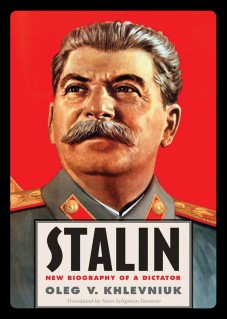 |
| Stalin |
To consider Stalin, for most historians, anything other than a monster would be a crime of large proportions. In fact so much so that he is often deprived of all feelings and emotions he might have had when alive. Whether these feelings and emotions actually existed or not would never be known, but still voices of denials of their existence are more powerful than which claim otherwise. Khlevniuk writes, “in today’s Russia, on the other hand, Stain’s image is primarily being shaped by pseudo-scholary apologias. Most of these authors blend a lack of the most elementary knowledge with a willingness to make bold assertions”.
The book begins with events of March, 1953, when Stalin was critically ill and his closest comrades were around him, or were trying to be around him, perpetually in fear of arousing his wrath lest he accused them of interfering in his daily activities. They were: Georgy Malenkov, Lavrenty Beria, Nikita Khrushchev, and Nikolai Bulganin. The flow of the book is sequential, with dropped-in scenes from this March of 1953, when most awaited the vozhd’s death, or rather wanted his death. Ioseb Jughashvili was born on 6-December, 1878 – a fact rather hidden in the official Soviet biography of that time.
The author has diligently dug in the archives to bring out a clearer picture of the power struggle behind Stalin’s back. From Stalin’s school days to his rebellious youth in the religious church, the portrait drawn is neither dry nor garnished with unnecessary facts. Though now Stalin is being written about through this lens of hindsight, sometimes this leads to too narrow an approach. It seems no matter what Stalin did, he was always wrong. Or always plotting against someone or the other. His various affairs and the terror of repression and kulaks are written about in much detail. Of all the leaders after Lenin’s death, why could only Stalin become the vozhd? The author gives ornate descriptions of the mindset of various comrades and their actions, but it was only Stalin who had this insatiable zeal to come out at the top.
The later events of World War II, his meetings with Churchill and Roosevelt in Teheran, Yalta and Potsdam, his efforts during Cold War to race ahead in arming USSR with nuclear-heads, his orders of shooting people close to him just to upset the balance of power, and his quirky behaviour with people associated with cinema – it’s all covered in this one. The analysis of Stalin when Hitler attacked USSR is nothing short of brilliant – the tension, the pressure, and the failure of the leader to lead. His transition to a ‘Generalissimo’ in eyes of his ‘followers’ is a tale worth remembering. The failures of Soviet leaders in terms of economic policies, wrong war-time decisions, strategic mistakes, political maneuvering are analysed in great detail by Khlevniuk.
This is a definitive biography of a man who cannot be just ignored or forgotten. A must read for anyone interested in Soviet history.
(And this was much better than Paul Johnson’s Stalin: The Kremlin Mountaineer – which was full of trite passes and biased writing)
Buy from Amazon:
